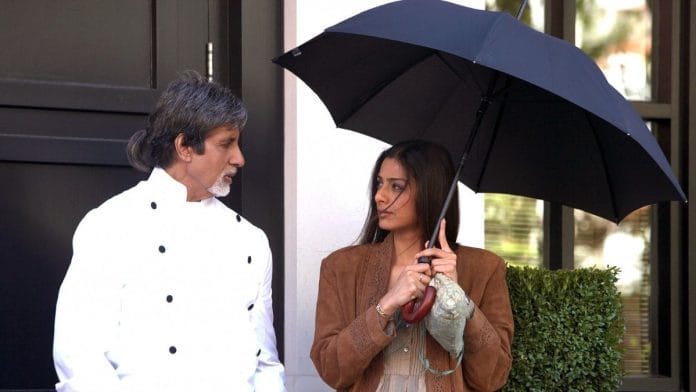Age-gap romance and Bollywood share an uneasy relationship. The sequel of Ajay Devgn-Rakul Preet Singh starrer De De Pyar De is yet another opportunity to explore this subject. Not every film can be a Cheeni Kum. And it doesn’t have to be. But depicting an age-gap romance can be tricky in India. There is judgement. There is a taboo attached to such stories. But the bigger taboo is showing an older woman romancing a younger guy. That is where Bollywood draws its lines.
Age gap romances are tricky in Bollywood. Cheeni Kum is a score, Dil Chahta Hai is a scandal
Women have an expiration date, men don’t. And age gap romances are meant to reaffirm male virility, not the starry-eyed notion of ‘age is just a number’.
Take a look at social media posts about Priyanka Chopra’s marriage to Nick Jonas, or Malaika Arora Khan dating Arjun Kapoor, they usually have at least one comment about the ‘oldie’ entrapping the poor young man. Never mind that the men in question are fully grown adults, who are capable of choosing whom they date or marry.
But when it’s an older man marrying a much younger woman, nay an eyebrow is raised. It’s after all ‘score’ on the part of the man, who managed to ‘get’ a younger woman.
In this a battle of score versus shame and the woman never wins.
Also read: Aamir Khan and Salman Khan are still dodging and deflecting the age question, 20 yrs later
How much of a gap is too much?
In this context, Cheeni Kum challenged many conventions—a white pony-tailed Buddhadev Gupta (Amitabh Bachchan) romanced the much-younger Nina Verma (Tabu). It didn’t shy away from addressing concerns of a man in his sixties, from ‘keeping up’ with his much younger partner both on and off bed, and seeking acceptance from Nina’s father Omprakash Verma (Paresh Rawal), who is younger than him.
It was not just the brilliance of the casting, but also the acknowledgement that all kinds of relationships exist.
However, when Bachchan played the older lover, Vijay, who falls for his daughter’s friend, Jia (Jiah Khan), just two months before, in Nishabd (2007), all hell broke loose. The audience was “sensitive”. It was too much for them.
Cheeni Kum’s treatment of the subject made a massive difference in the way the two films were received.
It was a message for filmmakers–age gap relationships can be portrayed, but within limits.
This interestingly, was also addressed in Nishabd when Vijay’s brother-in-law explains to Vijay, who is in his sixties, that Jia’s age is to be factored into before taking the relationship forward. It tried bringing the concept of grooming and coercion. And the complications when one of the people in the relationship is in their early twenties.
Also read: Farrhana Bhatt is the queen of Bigg Boss 19. She won’t bend, break, or beg for validation
Silver foxes and cougars
Age-gap romance made a comeback with De De Pyaar De (2019) where a divorced man in his 50s Ashish (Ajay Devgn) falls for the 26-year-old Ayesha (Rakul Preet Singh). It addresses what happens in India when families post divorce have to deal with age gap relationships. And it’s all played for laughs.
Comedy, drama or scandal—the older man-younger woman dynamic will always have a place in Bollywood.
But an older woman falling for a younger man will probably never become mainstream or be treated in the same way. Even in Dil Chahta Hai (2001), seen as progressive and cult favourite, the younger man-old woman romance ends in tragedy. Akash (Aamir Khan) makes fun of Siddharth’s (Akshaye Khanna) emotions and puts their friendship at stake.
In Ae Dil Hai Mushkil (2016), the older woman Saba (Aishwarya Rai Bachchan) is just a rebound for Ayan’s (Ranbir Kapoor) broken heart. He never reciprocates her love.
Older women are either hypersexualised and given titles like cougars or in Indian desi terms, bhabhi, or they are seen as sexless beings, the mother figure with no needs of her own. Older men get embellishments of silver fox, and more recently zaddy or daddy. And this binary is reflected in Bollywood too.
Views are personal.
(Edited by Theres Sudeep)






